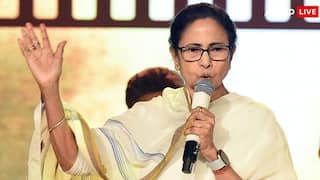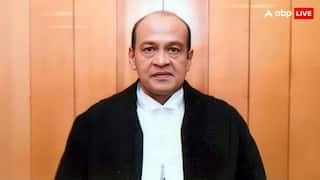MPC Minutes: Premature Pause In Monetary Policy Action Can Be Costly Error, Says RBI Governor
Among the seven members of MPC, six, including RBI Governor Shaktikanta Das, voted to increase the policy repo rate by 35 basis points.

Reserve Bank Governor Shaktikanta Das, during December’s Monetary Policy Committee (MPC) meeting, said that a premature pause in monetary policy action would be a costly policy error. This is according to MPC’s minutes that were released on Wednesday. In the MPC meeting held between December 5-7, the committee hiked the repo rate by 35 basis points to 6.25 percent to fight persistently high inflation.
The RBI had previously raised interest rates by 190 bps in four successive MPC decisions.
According to the minutes of the Monetary Policy Committee (MPC), Shaktikanta Das said, “I am...of the view that a premature pause in monetary policy action would be a costly policy error at this juncture. Given the uncertain outlook, it may engender a situation where we may find ourselves striving to do a catch-up through stronger policy actions in the subsequent meetings to ward-off accentuated inflationary pressures.”
He also said that in a tightening cycle, especially in a world of high uncertainty, giving out explicit forward guidance on the future path of monetary policy would be counterproductive. This may result in the market and its participants overshooting the actual play out of real conditions.
Among the seven members of MPC, Shashanka Bhide, Ashima Goyal, Rajiv Ranjan, Michael Debabrata Patra and Shaktikanta Das voted to increase the policy repo rate by 35 basis points while Jayanth R. Varma voted against the repo rate hike.
According to Varma, “economic growth is now extremely fragile and definitely not robust enough to withstand excessive monetary tightening.”
Varma said, “I believe that the 35 basis point rate hike approved by the majority of the MPC is not warranted in this context of reduced inflationary pressures and heightened growth concerns. I, therefore, vote against this resolution.”
Varma explained his stance saying growth concerns have become more troubling in recent months both globally and domestically. Financial markets are pricing in the likelihood of a recession in several advanced economies. During the pandemic, exports and government spending were the two growth engines that counteracted the headwinds confronting the Indian economy. Of these, the global slowdown has already led to the export growth engine grinding to a halt. Fiscal constraints limit the ability of government spending to hold up the economy on its own.
He said, “much of the impact of this large front-loaded monetary policy action is yet to be felt in the real economy. For these reasons, I believe that 6.25 per cent itself very likely overshoots the repo rate needed to achieve price stability, and poses an unwarranted risk to economic growth.”
The RBI minutes also showed that members expressed concerns about inflation. Shashanka Bhide, “The persistence of core inflation at the upper limit of the tolerance band of the inflation target is of particular concern.”
RBI deputy governor Michael Patra said, “Core inflation remains unyielding and diffused, with a rising price momentum as it tests the upper tolerance band on its own, warranting resolute monetary policy resolve to quell it.”
India's retail inflation rate slowed to an 11-month low of 5.88 per cent in November from 6.77 per cent in October, falling below the upper bound of the RBI 2-6 percent tolerance band for the first time in 2022.
Related Video
Union Budget 2025: Arvind Kejriwal lists the shortcomings of the Modi government's budget | ABP News | AAP





































